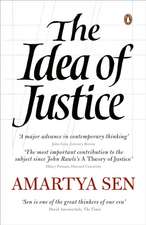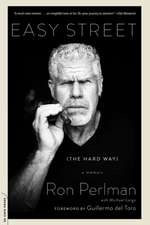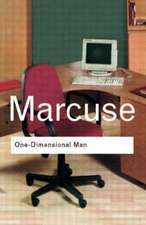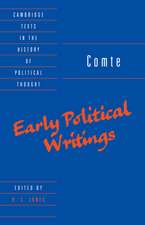Justice
Autor Michael J. Sandelen Limba Engleză Paperback – 31 iul 2010
"For Michael Sandel, justice is not a spectator sport," "The Nation"'s reviewer of "Justice "remarked. In his acclaimed book based on his legendary Harvard course Sandel offers a rare education in thinking through the complicated issues and controversies we face in public life today. It has emerged as a most lucid and engaging guide for those who yearn for a more robust and thoughtful public discourse. "In terms we can all understand," wrote Jonathan Rauch in "The New York Times," "Justice ""confronts us with the concepts that lurk . . . beneath our conflicts."
Affirmative action, same-sex marriage, physician-assisted suicide, abortion, national service, the moral limits of markets Sandel relates the big questions of political philosophy to the most vexing issues of the day, and shows how a surer grasp of philosophy can help us make sense of politics, morality, and our own convictions as well.
"Justice "is lively, thought-provoking, and wise an essential new addition to the small shelf of books that speak convincingly to the hard questions of our civic life."
| Toate formatele și edițiile | Preț | Express |
|---|---|---|
| Paperback (3) | 58.50 lei 21-33 zile | +21.00 lei 6-12 zile |
| Penguin Books – 24 feb 2010 | 58.50 lei 21-33 zile | +21.00 lei 6-12 zile |
| Farrar Straus Giroux – 31 iul 2010 | 108.28 lei 3-5 săpt. | +16.51 lei 6-12 zile |
| Oxford University Press – 27 sep 2007 | 281.15 lei 10-17 zile | |
| Hardback (1) | 405.93 lei 41-47 zile | |
| Oxford University Press – 26 sep 2007 | 405.93 lei 41-47 zile |
Preț: 108.28 lei
Nou
20.72€ • 21.63$ • 17.15£
Carte disponibilă
Livrare economică 14-28 martie
Livrare express 27 februarie-05 martie pentru 26.50 lei
Specificații
ISBN-10: 0374532508
Pagini: 308
Dimensiuni: 141 x 209 x 22 mm
Greutate: 0.3 kg
Editura: Farrar Straus Giroux
Colecția Farrar, Strauß and Giroux
Descriere
Affirmative action, same-sex marriage, physician-assisted suicide, abortion, national service, the moral limits of markets--Sandel relates the big questions of political philosophy to the most vexing issues of the day, and shows how a surer grasp of philosophy can help us make sense of politics, morality, and our own convictions as well.
"Justice "is lively, thought-provoking, and wise--an essential new addition to the small shelf of books that speak convincingly to the hard questions of our civic life.
Notă biografică
Recenzii
Justiceis a lucid and compelling analysis of our current moral dilemmas, which argues for a new commitment to citizenship and the common good
In the beautifully concise explanations of American philosopher Michael Sandel, I see great insight into our current predicaments. If any political reckoning is on its way . . . then perhaps it might come from the philosophy department of Harvard
Michael Sandel, perhaps the most prominent college professor in America,...practices the best kind of academic populism, managing to simplify John Stuart Mill and John Rawls without being simplistic. But Sandel is best at what he calls bringing 'moral clarity to the alternatives we confront as democratic citizens'.... He ends up clarifying a basic political divide - not between left and right, but between those who recognize nothing greater than individual rights and choices, and those who affirm a 'politics of the common good,' rooted in moral beliefs that can't be ignored
Michael Sandel transforms moral philosophy by putting it at the heart of civic debate....Sandel's insistence on the inescapably ethical character of political debate is enormously refreshing
A spellbinding philosopher.... For Michael Sandel, justice is not a spectator sport.... He is calling for nothing less than a reinvigoration of citizenship
An ambitious and an appealing idea. Intriguingly, I find myself persuaded that it might well be worth a try
More than exhilarating; exciting in its ability to persuade this student/reader, time and again, that the principle now being invoked-on this page, in this chapter-is the one to deliver the sufficiently inclusive guide to the making of a decent life
Sandel explains theories of justice...with clarity and immediacy; the ideas of Aristotle, Jeremy Bentham, Immanuel Kant, John Stuart Mill, Robert Nozick and John Rawls have rarely, if ever, been set out as accessibly... In terms we can all understand,Justiceconfronts us with the concepts that lurk, so often unacknowledged, beneath our conflicts
This book is absolutely indispensable for anyone who wants to be a good citizen. It shows how to balance competing values, a talent our nation desperately needs nowadays
Sandel dazzles in this sweeping survey of hot topics.... Erudite, conversational and deeply humane, this is truly transformative reading
Hard cases may make bad laws, but in Michael Sandel's hands they produce some cool philosophy.... Justice is a timely plea for us to desist from political bickering and see if we can have a sensible discussion about what sort of society we really want to live in
There have been various attempts over the decades to bury moral philosophy -- to dismiss convictions about right and wrong as cultural prejudices, or secretions of the brain, or matters so personal they shouldn't even affect our private lives. But moral questions always return, as puzzles and as tragedies. Would we push a hefty man onto a railroad track to save the lives of five others? Should Petty Officer 1st Class Marcus Luttrell, in June of 2005, have executed a group of Afghan goatherds who, having stumbled on his position, might inform the enemy about his unit? (Luttrell let them go, the Taliban attacked, and three of his comrades died.) These examples and others -- price-gouging after Hurricane Katrina, affirmative action, gay marriage -- are all grist for the teaching of Michael Sandel, perhaps the most prominent college professor in America. His popular class at Harvard -- Moral Reasoning 22: Justice -- attracts about a sixth of all undergraduates. For those lacking $49,000 a year in tuition and board, he has writtenJustice: What's the Right Thing to Do?which has been further translated into a PBS series and a Web site, JusticeHarvard.org
There have been various attempts over the decades to bury moral philosophy -- to dismiss convictions about right and wrong as cultural prejudices, or secretions of the brain, or matters so personal they shouldn't even affect our private lives. But moral questions always return, as puzzles and as tragedies. Would we push a hefty man onto a railroad track to save the lives of five others? Should Petty Officer 1st Class Marcus Luttrell, in June of 2005, have executed a group of Afghan goatherds who, having stumbled on his position, might inform the enemy about his unit? (Luttrell let them go, the Taliban attacked, and three of his comrades died.) These examples and others -- price-gouging after Hurricane Katrina, affirmative action, gay marriage -- are all grist for the teaching of Michael Sandel, perhaps the most prominent college professor in America. His popular class at Harvard -- Moral Reasoning 22: Justice -- attracts about a sixth of all undergraduates. For those lacking $49,000 a year in tuition and board, he has writtenJustice: What's the Right Thing to Do?which has been further translated into a PBS series and a Web site, JusticeHarvard.org





















